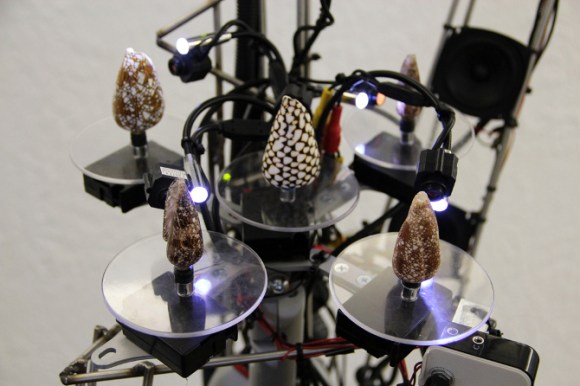
We love art installations that use technology in ways probably never before considered, and Moscow media artist [Dimitry Morozov] has done just that with ‘conus’, which reads the surface of mollusk shells and translates the data into real-time audio and video. These shells are unique; their pigmentation generates natural cellular automata. (If you’ve never heard of cellular automata, Conway’s Game of Life is a good example, where a rule set determines whether a cell lives, dies, or regenerates.
[Dimitry’s] installation uses homemade digital microscopes to scan the naturally-created cellular automata of several shells, each rotating on its own disc. As the shell spins, the scans from the microscopes are fed into an algorithm which transforms the signals into data for multiple audio channels and three video monitors. You can watch the mathematical translation of the biologically-formed patterns in a video after the break.
Check out the MSP430 game of life shield for another example of cellular automata.










